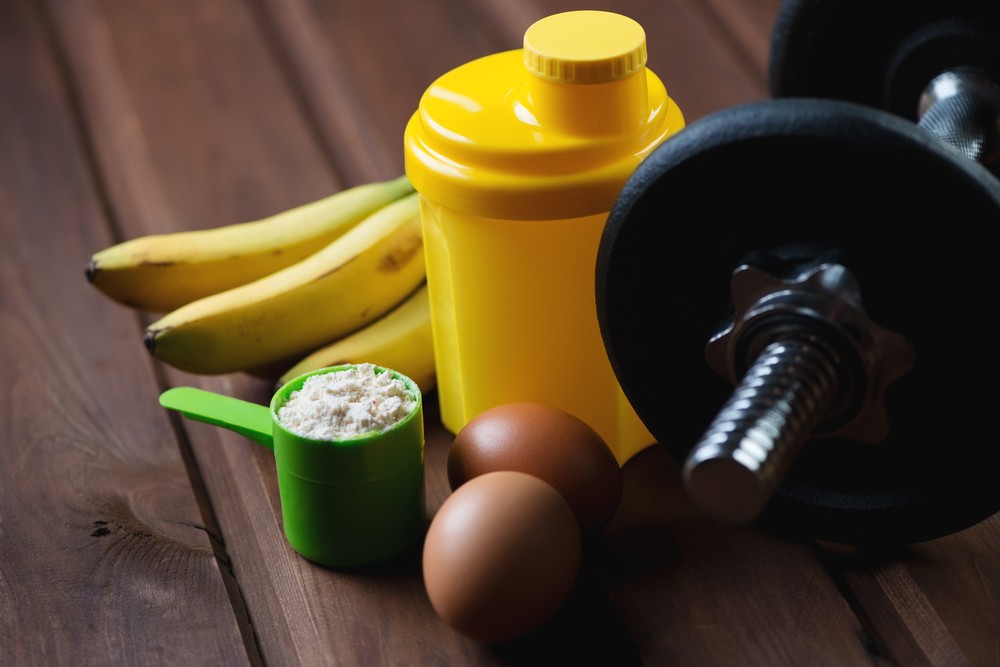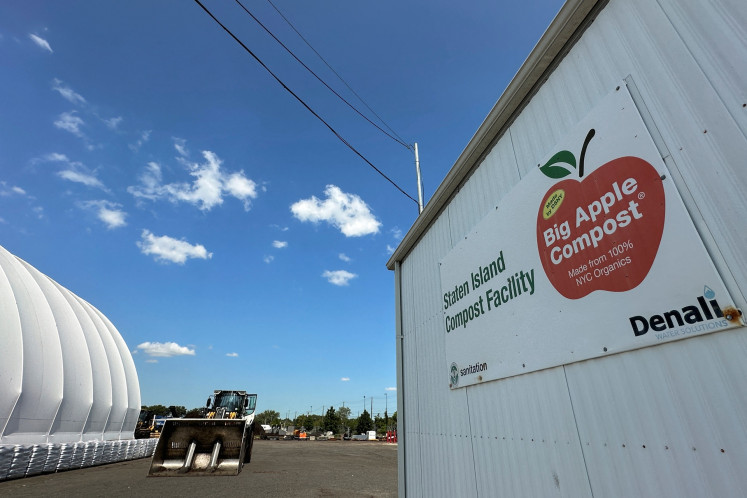Popular Reads
Top Results
Can't find what you're looking for?
View all search resultsPopular Reads
Top Results
Can't find what you're looking for?
View all search results10 essential foods for muscle building
Foods that are high in protein and low in fat are essential to muscle building, but should be part of a balanced healthy diet for best results. Here are the top 10 foods for muscle growth.
Change text size
Gift Premium Articles
to Anyone
W
hen building muscle, it is important to remember that exercise and lifting weights are not the only parts of the formula. You also need to have a healthy balanced diet, which will not only provide the protein to build muscle but also supply the body with energy and nutrients necessary to complete your workouts.
Although it is common belief that protein is the key nutrient required to build muscle, it is by no means the only component that contributes to an optimal diet for muscle growth. Essentially, a balanced diet, rich in fruit and vegetable, complex carbohydrates and healthy fats, as well as good protein sources are required to promote muscle growth.
Which foods help you build muscle?
Foods that are high in protein and low in fat are essential to muscle building, but should be part of a balanced healthy diet for best results. Here are the top 10 foods for muscle growth.
Olive oil
You can’t mention mass building without discussing olive oil. At 120 calories per tablespoon, olive oil is a great source of muscle-building calories too. Between 20 and 35 percent of your calories should come from fats on a muscle-building diet.
Research shows that olive oil controls inflammation in the body, and lower rates of inflammation are generally linked to improved recovery. Olive oil also produces hormone-like substances that support testosterone levels and, as with any source of fat, they are a dense source of calories, which help tilt the body into an anabolic state.
Almonds
Due to their high content of healthy monounsaturated fats, nuts are extremely calorie-dense. This makes it easy to eat a large amount of calories from a relatively small serving, making them a good option if you are struggling to consume ample calories for growth.
Almonds are another plant-based food absolutely packed full of protein. Just a quarter of a cup of almonds contains nearly 8 grams of protein – that’s nearly two grams of protein more than your typical egg! Almonds are also an excellent source of heart-healthy monounsaturated fats and magnesium. Magnesium is an abundant mineral that is used in more than 300 biochemical reactions in the body and is specifically known to be involved in energy metabolism and protein synthesis.
Cottage cheese
It may sound surprising, but most serious bodybuilders include cottage cheese among their top muscle-building foods. To understand why, simply read the label of your typical low-fat or fat-free cottage cheese. Just half a cup of low-fat cottage cheese packs a whopping 14 grams of protein in only 80 calories with less than two grams of fat. Trust us, this one’s a winner.
Oysters
Although not the best-known muscle-building food, oysters are another secret specialty of weightlifters and bodybuilders alike. Just 100 grams of cooked Pacific oysters yield upward of 20 grams of protein with only 5 grams of fat.
Oysters also provide more zinc than any other food. Like magnesium, zinc is another mineral that’s essential for protein synthesis, making oysters a top food for muscle growth.
Milk
From a young age we are reminded of the importance of milk to a growing body, and as an adult milk remains just as important.
Because milk is an animal food, it provides all the essential amino acids while containing very little fat (especially skim milk). The benefit of milk to muscles is even greater considering that it mixes so well with whey protein.
Lean ground beef
Red meats, like lean ground beef, are an excellent source of protein, so completely avoiding them because of the "red scare" might be a mistake.
Just 100 grams of lean ground beef contains upward of 27 grams of protein! Although such a serving is also high-fat (it contains 11 grams of fat and around 200-plus calories), what separates beef from its other meat competitors is all the additional vitamins and minerals it contains. Beef is teeming with vitamin B12, zinc and iron – all of which are important for muscle growth and development.
(Read also: If you want to build muscle, you have to boost protein intake)
Soy
Whether served as edamame, tofu or soy milk, the muscle-building benefits of the soybean simply cannot be paralleled by any other plant source. As one of the few plant sources that provide complete protein, soy packs its protein in style. Just one cup of cooked soybeans contains over 20 grams of amino acids.
Soy is also stacked with other important vitamins and minerals, making this meat one of the healthiest muscle-building alternative foods around.
Eggs
Eggs aren't just for breakfast – they are good muscle-building fare at any time of the day. They contain good-quality protein, healthy fats and plenty of vitamins and minerals.
Each egg comes loaded with around 5 to 6 grams of protein at the very low caloric cost of only 60 calories. But it’s not just the amount of protein that makes eggs so special, it’s also the type: egg protein is considered to be the most readily utilizable protein with the highest biological value of any whole food. This means that the protein in eggs is used most efficiently for muscular growth.
Chicken
Chicken is the staple muscle-building food. A nice, lean 100-gram slab of this white meat will fill you with a hearty serving of 31 grams of protein with only – wait for it – 4 grams of fat. So, as far as the protein-to-fat ratio is concerned, you’re looking at a superstar.
Combine chicken’s great taste and its meal versatility and there’s really no arguing that chicken belongs among the top muscle-building foods.
Fish
Fish is a complete protein that is low in saturated fats, making it an ideal source of amino acids in a healthy diet. Salmon is potentially a better muscle-building protein than a low-fat fish, such as tuna or cod, because it's higher in calories. These extra calories are ideal if you're active and looking to build muscle, notes dietitian Karen Ansel. You also get healthy omega-3 fats, calcium and vitamin D.
Don’t forget your fruits!
Fruits provide a natural source of carbohydrates along with a good amount of vitamins and minerals. For higher-calorie fruits, choose bananas, pineapple, or dried fruits such as raisins or dried cranberries.
Pair these fruits with whole-grains, such as oats, brown rice and whole wheat bread, or root vegetables like sweet potatoes. Additionally, sweet potatoes are more nutrient-dense than white potatoes, and they supply slow-digesting carbs. (kes)












